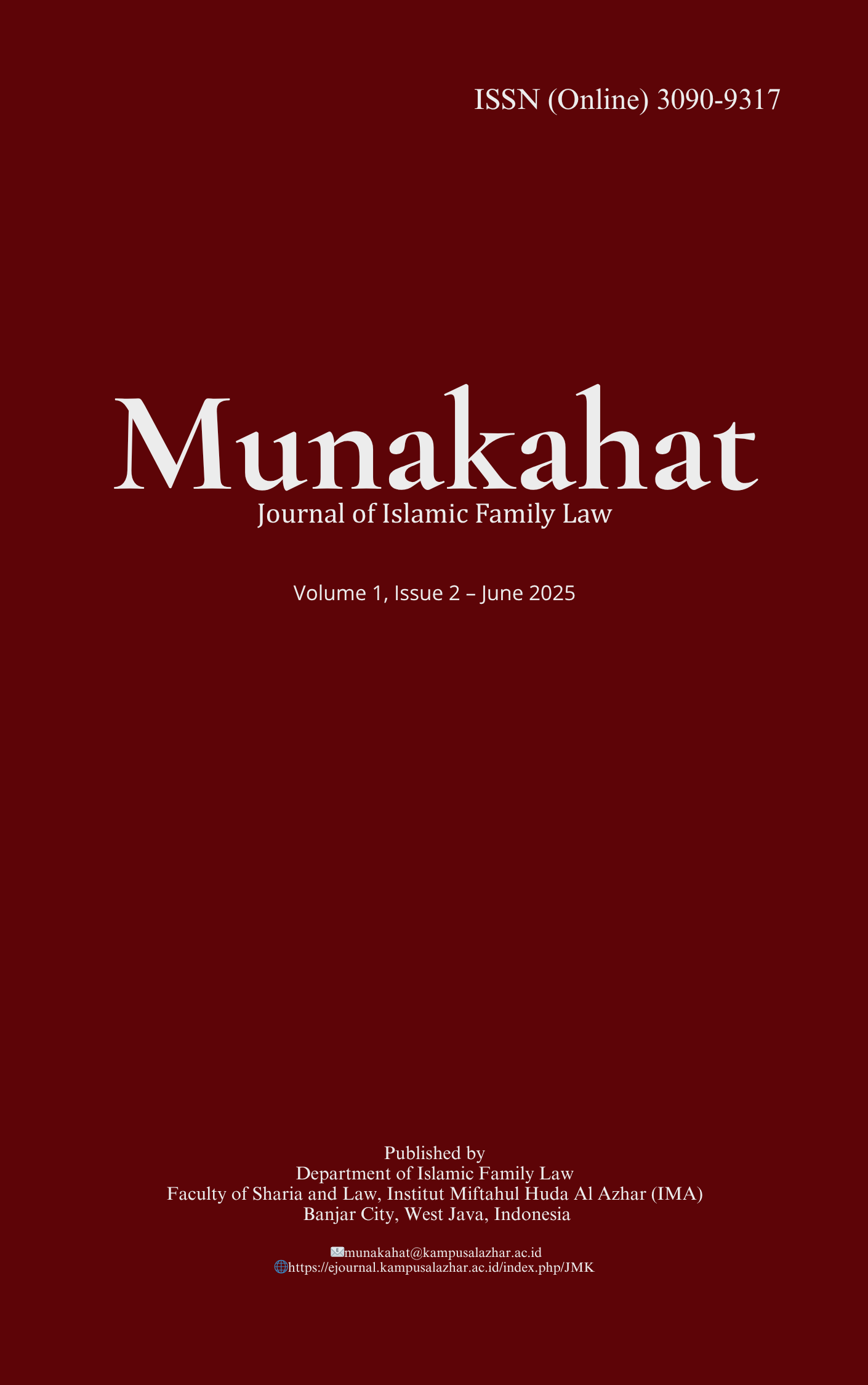Vol 1, No 2 (2025): June Edition
Issue Description
Munakahat: Journal of Islamic Family Law, ISSN (Online) 3090-9317
Volume 1, Issue 2 (June 2025)
Theme: Islamic Family Law in the Age of Digital Disruption and Global Plurality
This second issue of Munakahat: Journal of Islamic Family Law explores the evolving landscape of Islamic family law amid rapid technological innovation, socio-cultural transformation, and global legal pluralism. With contributions from scholars across diverse geographies—including Indonesia, Malaysia, Russia, and South Korea—this edition offers interdisciplinary perspectives on the critical challenges and innovations shaping Muslim family institutions today.
Key articles featured in this issue include:
“Integrating Rukyatul Hilal Practices and Islamic Family Law: A Case Study in Banjar City, Indonesia” by Salwa Zahra Zulfiani Fitriyah and Nurul Ilyana Muhd Adnan, which examines the legal and epistemological tensions between traditional moon sighting (rukyat) and astronomical calculations (hisab), highlighting their impact on legal certainty in matters of marriage and inheritance.
“Online Gambling, Dirty Money, and Family Breakdown: Islamic Legal Reflections on Promensisko 2025” by Kukun Abdul Syakur Munawar and Andrey V. Kotyazhov, which critiques the growing threat of cybercrime and money laundering through an Islamic legal lens, advocating for a maqāṣid al-sharī‘ah-based framework to protect family integrity and promote social justice.
“Leveraging Artificial Intelligence for Efficient and Transparent ZISWAF Management: Comparative Insights from Indonesia and Malaysia” by Dwi Fadilatul Mukaromah et al., which explores how AI technologies can revolutionize zakat, infaq, sadaqah, and waqf (ZISWAF) systems while remaining aligned with Islamic ethical principles.
“Legal Interpretation of Conditional Polygamy Prohibition in Marriage Contracts: A Comparative Study in Islamic Law” by Ahmad Rofik et al., offering a detailed comparison between classical Shafi’i jurisprudence and Indonesia’s codified Islamic legal system regarding the enforceability of conditional clauses in marriage.
“Modern Technology in Qibla Direction Mapping: A Comparative Case Study Between Indonesia and South Korea and Its Implications for Islamic Family Law” by Zahrotul Habibah et al., investigating how digital tools like GPS and AI impact religious observance and legal practices in both Muslim-majority and minority contexts.
Through its rigorous scholarship and multidimensional approach, this issue provides novel insights into how Islamic family law is being reimagined across cultural, legal, and technological boundaries. It is an essential resource for academics, legal practitioners, policymakers, and anyone seeking to understand the transformation of Islamic law in a rapidly changing global society.

